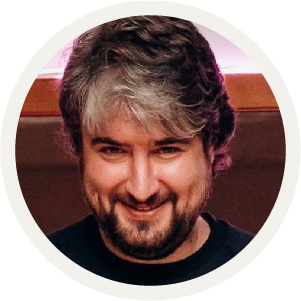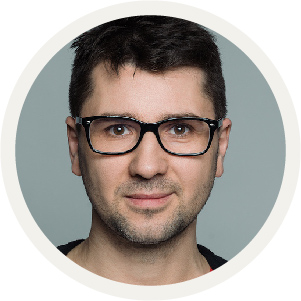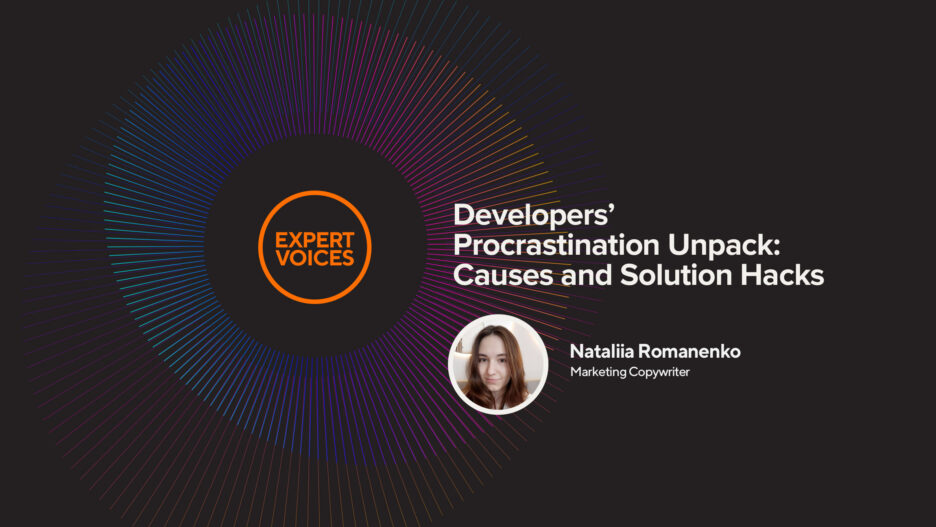Staring at my task list for this development project, I see the usual end-of-day scene - all the little tickets checked off except for that one big feature at the bottom, which I've been avoiding. I tell myself, "No worries, I'll knock it out tomorrow, swear!" But underneath, I'm frustrated that I keep putting off this complex task.
If this is relatable, then you and me both. Procrastination sneaks up on the best of us now and then. For some people, it's occasional, but for chronic procrastinators, it becomes a habit that reduces their productivity.
So, if you're in the procrastination boat, don't worry. There's a way out, and we'll get there - maybe not today, but the journey of a thousand tasks begins with a single...oh look, funny meme. Ok, let's start.
Why Developers Procrastinate and How They Handle It
Reasons for procrastination come in many flavors. Perfectionism, lack of priorities, or poor time management are just the ones that come to my mind first. Luckily, the psychologists have already offered some methods to handle the problem. Moreover, our team members have bravely opened up about their experience dealing with procrastination. So, let's overview each reason and its possible solutions.
Reason #1. Perfectionism
Aiming high can be helpful, but unrealistic expectations of perfection can paralyze you. The fear that the outcome won't meet impossibly high standards can stall starting altogether. This cycle of wanting flawlessness yet dreading mistakes hampers getting things done. A 2017 study found those prone to perfectionism were also more likely to put things off.
My procrastination is also often fueled by perfectionism. Take this article, for example - I kept putting off writing it because I was worried it wouldn't turn out as great as I envisioned. The fear of not doing justice to our team members' experiences also held me back. To overcome this, I've found that setting a strict and near deadline works for me. When I commit to delivering by a specific time, there's no room for missing the deadline.
Productivity Hacks from the Svitla Team

Kostiantyn Bilyk, Mobile Practice Lead, Team Lead and Lead iOS/macOS Engineer: “In my case, perfectionism is a part of my personality. I always aim to do the task perfectly and in the best possible way. For sure, sometimes it causes procrastination. I start thinking that if I can't do the task perfectly, I'd better not do it all. On the one hand, it's a nasty treat. Yet, if we think about it from another perspective, there are some positive sides. When faced with complex tasks, I tend to put them on hold and focus on simpler ones.
This way, I stay productive. I also find the 80/20 rule, known as the Pareto principle, helpful in my work. If a task is complex, I tackle its core first and then create a follow-up ticket for the remaining aspects. Surprisingly, more often than not, these follow-up tasks become unnecessary over time. Now, let's move on to the real-life example. In 2014, I faced a challenge to develop a telemedicine video chat platform, a concept ahead of its time, given the technological constraints of 2014-2015. I treated this task with my perfectionist attitude. So, I took one week to do some research. And another week to implement my idea. By the end of the first week, I found the ideas I liked and presented them to the project manager. After their approval, I started implementing them. By mid-next week, I had finished the platform's basic functionality - to start and end a call. After that, I presented it to the customer, who was quite satisfied. Soon after, I found out, that the other development team had been working on the task I'd done in 2 weeks, for 3-3.5 months."

Nadiia Chumak, Senior Go Developer: “I began to notice my tendency to procrastinate since my school days, right from childhood. I understand there must always be a perfect version when doing homework or writing code. Now, I've gotten a bit better with that. So, when I see myself spending time on things already working fine, I try to stop and push the code. It helps me get things done faster."
Reason #2. Absence of Instant Results
We're used to getting things fast now. But big projects take time before you see results. We get tempted to procrastinate when we don't get that quick feeling of finishing something. We immediately switch to more manageable things that make us feel good, like checking our phones. To fix this, set small milestones to finish the big project. Breaking it into smaller steps makes each piece feel less complicated, and finishing each step motivates you to continue.
Productivity Hacks from the Svitla Team

Andriy Arysmyatov, Senior .Net Developer: “Facing a task that initially seems manageable, but as you delve into it, the results remain elusive. It gets postponed, especially when it's not a top priority. The cycle of delay continues until you find a moment of free time. You keep postponing, pushing it aside, and eventually, it slips from your mind. Instead of actively combating this tendency, consider breaking down the task into smaller subtasks. It's essential not to harbor illusions about the ease of completion. Challenges arise, and acknowledging them is the first step. Planning subtasks helps tremendously. Allocate dedicated time rather than tossing the task aside. Setting specific plans and sticking to them is crucial, ensuring that the task doesn't get lost in daily activities."
Reason #3. Unclear Understanding of the Final Result
Fuzzy goals stall momentum. Laser focus fuels drive. Define projects concretely - what must happen and when. Broad assignments invite procrastination. Specific, scheduled tasks kindle motivation. Chop large efforts into bite-sized pieces. Rather than “finish report" in the foggy future, spot “Draft intro section Tuesday, 10 AM-12 PM" in the calendar now. Granular goals crystallize the path from concept to completion. They transform vague aspirations into timed action steps. Clarity breeds productivity. Hone objectives. Then, accomplish each scheduled session one at a time.
Productivity Hacks from the Svitla Team

Pavlo Zubenko, JS Lead: “To tackle procrastination, I've got a few tricks. If it's a big task, I take a break - maybe grab a slice of pie or brew some coffee. It's a mini reward to keep things rolling. During a hefty project, I take short breaks, get some coffee, or snack a bit to stay sharp. I ditch my phone and stick to using a notebook to dodge distractions. Magnetic doodle pads and a whiteboard notepad help me sketch out ideas and smoothly switch between different parts of the task. Taking a step back and looking at the big picture helps gain some perspective. As I near the end of a task, I follow a simple rule: no starting anything new for precisely 20 minutes. It's a way to wrap things up".

Yurii Stasuik, Senior Front-End Developer: “When you're working on a product but don't get the expected result, it messes with your motivation. Being a front-end developer is not just about coding. You also have to think about the user interface and get feedback, which is not always there. The fix? Well, maybe switching up the project is the easiest option. For me, also doing A/B tests work. This way, I get the necessary feedback, keep myself motivated, and improve the final product."
Reason #4. Lack of Self-Discipline
Pushing through routine or tiring tasks takes self-control. When self-discipline is lacking, procrastination often happens instead. Building good daily habits boosts focus and avoids distractions. This means limiting social media, turning off notifications, and potentially using website blockers. Start each day by working on priorities, not checking emails. Taking regular breaks to rest fully recharges energy and concentration. The key is structuring consistent conditions focused on concentration until self-discipline becomes a habit.
Productivity Hacks from the Svitla Team
Yurii Stasuik, Senior Front-End Developer: “Balancing work, home stuff, family, and other tasks can be challenging, especially when working from home. I've established clear boundaries to combat procrastination due to a lack of self-discipline. I avoid working in bed, dedicating 3-4 hours to focused work, followed by a break. This approach helps me maintain productivity and balance within my responsibilities."
Reason #5. Task is Too Difficult
We often put off work that seems too hard, or we don't feel skilled enough to complete it. Tasks with unclear instructions or too many complex parts can make us freeze up and avoid starting. To fix this, break big intimidating goals into small bite-sized tasks. This outlines a path to slow but steady progress.
Look at what skills you need to develop and leave enough time for improvement. As you build momentum step-by-step, what felt impossible starts to seem within reach. Check in often to adjust expectations before frustration creeps in. Bit by bit, seeing progress dispels the notion that the level of difficulty can't be handled. Structuring overwhelming tasks into achievable pieces avoids putting them off.
Productivity Hacks from the Svitla Team

Kristina Shatts, Senior Node.js Developer: “Currently, I rarely procrastinate due to overly complex tasks. There was a time, especially when I was a beginner, when I was afraid to work on challenging tasks, making me nervous. To tackle this, I tried to break down the tasks into smaller sub-tasks to understand them better and deal with each part separately. Seeking assistance was also important. Not just from colleagues, but also by reaching out to acquaintances, friends, and individuals knowledgeable in the field. Asking questions was something I learned not to fear. There is nothing wrong in not knowing something".
Kostiantyn Bilyk, Mobile Practice Lead, Team Lead and Lead iOS/macOS Engineer: “In 2019, I started to lead work on the new project. Its idea seemed almost unrealistic - creating a next-gen file manager with meta-connections between files. The project involved mobile/desktop platform support, Apple sign-in, and working without servers. It seemed daunting from an engineering perspective, but the project looked interesting, long-term, and promised team expansion.
Initially, I was overwhelmed. To overcome this state, I adopted the eat-the-frog technique. Each day, I set one challenging but doable task - the “frog" - to tackle. This simple strategy helped maintain a steady workflow.
Another useful thing for me was incremental growth. Starting with basic functions, I gradually expanded the functionality. As the project grew, we added AI-driven features and integrated chat support. I needed a holistic vision, breaking the project down like a pyramid and building it up iteratively."
Reason #6. Boring Task
Tedious tasks need a fresh take. What could make this better? Look for hidden upsides and chances to grow. Get creative - can you mix fun with work? Make dull duties more lively. Add enjoyment into tasks. Reframing can shift your mindset, fueling motivation. Find enriching bits in each chore. Tweaking your view lifts your mood, lightening the workload. Soon, getting things done flows faster, building your willpower.
Productivity Hacks from the Svitla Team
Kristina Shatts, Senior Node.js Developer: “If there's something new and exciting, I'm all in, but the not-so-interesting stuff, like messing with database scripts, tends to make me procrastinate.
To tackle this, I've got this Pomodoro technique going on - work hard for 30 minutes, then take a 10-minute break to do something fun as a reward. I'm a pretty sociable person. So collaborating with colleagues on tedious tasks also works for me.
Finally, if I'm doing routine stuff the whole day, I take more time for breaks afterward - solving puzzles, enjoying some tea, or just chatting with someone to shake things up."
Reason #7. "I'll Do It Later"
The mindset of "I'll do it later" leads to endless delays. Unpleasant tasks often get pushed to some vague future time to avoid doing them now. But later rarely comes, creating a cycle of stress and rushed last-minute work. To break this, firmly decide what will get done today, not someday. Tying daily goals to values, not just distant obligations, makes completing them more meaningful.
Productivity Hacks from the Svitla Team
Kristina Shatts, Senior Node.js Developer: “If there's no deadline, I tend to postpone things. But funny enough, I do things without a hitch when there's a deadline.
With bigger tasks, I convince myself I can knock them out quickly and decide to do them later. Yet looking back, I understand that it's not the best approach. At first sight, the task may seem less time-consuming than it is. In this case, the best way is to look closer at the task and estimate its priority from the beginning.
Reason #8. Lack of Energy
When energy is low, big tasks can feel impossible. But waiting until we feel perfectly energized to start important work can cause endless delays. Regular routines for sleep, diet, exercise, and renewal activities help manage daily energy. To combat a lack of motivation, know when you tend to focus best and tackle critical projects.
For draining items at low-energy times, briefly work in 20-30 minute intense bursts, then wholly rest. If you often feel exhausted, carefully spend high-value energy on priorities while conserving strength to recharge. With enough built-in self-care, you store vitality instead of endlessly waiting to feel energized first before starting.
Productivity Hacks from the Svitla Team
Andriy Arysmyatov, Senior .Net Developer: “Whenever my motivation takes a hit, I find it crucial to take a break. I step away and read something, but I always try to maintain focus. Getting a good night's sleep or walking helps recharge my energy. When I return, I make it a point to create a clear plan.
Purposeful procrastination involves taking a break to rest and returning with a fresh perspective. Switching to another task and returning later often leads to a quick resolution within 1-2-3 hours.
I also contact my team for help when needed. Sharing my feelings and challenges with colleagues can make a significant difference. Having a trustworthy manager's support is also crucial in such situations."
Yurii Stasuik, Senior Front-End Developer: “Procrastination hits me quite often, especially after an initial burst of energy. I've figured out that taking a moment to recharge and switch things up helps. I turn to things like snowboarding, hiking the mountains, or going on a trip for an energy boost.
Procrastination is less common at work, but it tends to sneak in when I'm dealing with something new or uncertain. I've got some tricks up my sleeve, but handling procrastination is an ongoing struggle. It's all about finding that balance and grabbing energy from different things I enjoy doing."
Reason #9. Mental Issues
Putting things off can sometimes come from underlying mental health issues. Symptoms like depression, anxiety, ADHD, or chronic stress drain motivation to start and stick to boring work. Without treating the root causes, just trying to push through backfires.
For example, emotional paralysis may benefit from scheduling required activities each day. Perfectionism from anxiety might require reframing unhelpful thought patterns. Those with ADHD can use external accountability tools to manage distractibility. When mental troubles obstruct average productivity, the most critical step is acknowledging the needs.
Productivity Hacks from the Svitla Team
Pavlo Zubenko, JS Lead: “As a kid, I was diagnosed with dyslexia, especially dysgraphia. It didn't stop me from becoming a developer. Yet I have some challenges to overcome. Reading tech docs can be a bit of a struggle. The sentences don't flow smoothly, and there's always something interesting popping up to distract me. But, you know, you get used to it, and I've figured out some tricks to handle it. For instance, I found out that a power nap is really helpful - it's a short, 15-30 minutes of sleep, after which I feel recharged and more concentrated".
Conclusion
Understanding why we procrastinate is the first step to getting things done in the quest for productivity. Whether it's the desire for perfection or unclear priorities, each obstacle has a solution. With awareness and solutions, we can turn procrastination into a helper, making overcoming challenges easier.
In the end, getting through a thousand tasks might take time. Still, with simple strategies and self-understanding, we're on a journey where procrastination is a temporary sidekick, not a constant companion.





